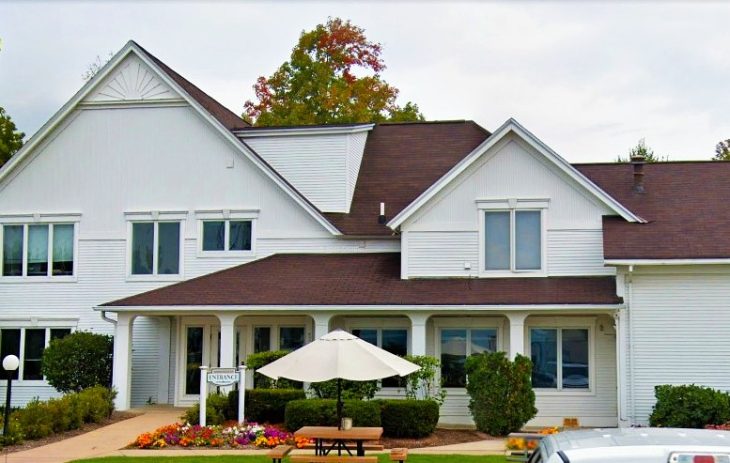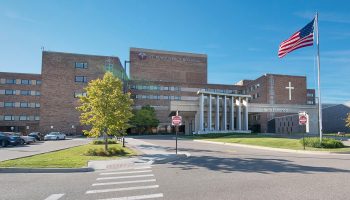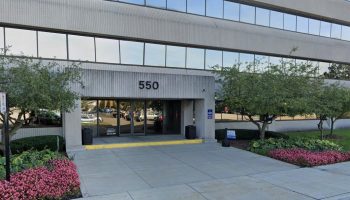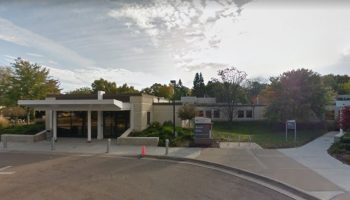About Harbor Hall – Petoskey Residential
The Petoskey Residential of Harbor Hall provides adults with substance abuse treatment in Petoskey, Michigan. The organization is CARF-accredited and they’re members of the National Association of Addiction Treatment Providers.
Medicaid is accepted, as well as most commercial insurances. If you are uninsured, you’ll be able to self pay for your treatment services.
Their residential program is for both men and women. Men and women will be housed separately. The men’s facility is a nondescript residence that has 40 beds, while the women’s facility has eight beds. Both men and women must be 18 years of age or older to receive residential services.
I like that withdrawal management is offered as part of their residential program. Before beginning, you will undergo a medical screening. The purpose of the medical screening will be to determine your need for this level of care. This will also help their staff develop your customized treatment plan.
During your time in withdrawal management, you’ll have 24 hour support, observation and supervision. By constant monitoring, your safety will be ensured during your withdrawal process. If excursions are possible, North Country Trail & Iron Belle Trail are just down the street. You can also volunteer at Camp Daggett.
Art therapy will be offered as part of the residential program. Their heart studio provides expressive art therapy. With art, you are able to express your feelings, thoughts and experiences without using words. Your peers will provide a safe and supportive environment. I do like that each week there is a new art project theme. The theme will always relate closely to topics discussed during group therapy.
Levels of Care
-
Inpatient
Inpatient and residential programs provide round-the-clock medical and emotional support as you live at the treatment facility. This level of care may be recommended if you have severe addictions or mental health conditions since it removes outside distractions and allows you to focus solely on therapy.
-
Outpatient
In outpatient therapy, you’ll attend therapy sessions several times each week while living at home. This is ideal if you have a strong support system and a lower risk of relapse. Outpatient treatment offers flexibility to maintain work, school or family obligations.
-
Aftercare
Aftercare programs provide ongoing support after you complete a rehab program. They may include several components to help you maintain sobriety including therapy, community support groups and relapse prevention strategies. This gives you a network of resources as you reintegrate into your daily life.
-
Dual Diagnosis
Dual diagnosis programs address substance use disorders and co-occurring mental health conditions simultaneously. This integrated approach to care improves the likelihood of long term recovery and stability by addressing the root causes of addiction.
-
Sober Living
Sober living homes provide a supportive and substance free environment for you to live in as you overcome your addiction. Residents must follow house rules and support each other's recovery journeys. Sober living fosters accountability and stability during this critical phase of recovery.
Detox Service Setting
-
Inpatient Detox
Inpatient detox occurs in a dedicated treatment facility. You’ll live there around the clock and receive intensive medical support and supervision to help manage your withdrawal symptoms. It is suitable for individuals with moderate to severe addictions as it ensures a stable detox environment.
-
Outpatient Detox
Outpatient detox gives you access to medically supervised withdrawal services while still allowing you to live at home. You’ll attend a clinic for treatment and monitoring. This flexible option is suitable for those with mild to moderate withdrawal symptoms who have strong support systems.
Programs
-
Adult (18+)
Adult programs address the substance use and life challenges specific to adults. Therapists can deliver sessions in individual, group and family settings. Services often include job support and life skills training in a structured environment.
-
Alcohol Detox
Alcohol detox programs offer medical support to help individuals withdraw safely from alcohol. Your care team may use medications to ease your symptoms and provide medical monitoring to address complications.
-
Cognitive Behavioral Therapy
Cognitive behavioral therapy focuses on changing harmful thought patterns and behaviors associated with addiction. You’ll learn healthier coping mechanisms by identifying and replacing negative thoughts. This improves your emotional resilience and decreases your relapse potential.
-
Men
Men's programs address substance use while also considering the social pressures, family roles and mental health concerns that are specific to men. You’ll learn healthy coping mechanisms as you build emotional resilience and develop communication skills.
-
Opioid Detox
Opioid detox uses medications to ease severe withdrawal symptoms. It also includes medical supervision to help you manage potential complications. These services allow you to stabilize and begin a recovery plan.
-
Rational Behavior Therapy
Rational behavior therapy helps you identify irrational beliefs that contribute to an addiction. Challenging and modifying those beliefs helps you develop healthier attitudes and behaviors. This therapy supports long term sobriety and sustainable recovery.
-
Young Adult (18 - 25)
Young adult programs are designed for individuals who are transitioning into adulthood. Topics of discussion typically include identity, independence and peer relationships. Providers may also offer life skills training and career support.
Payment Options
- Payment Assistance
- Medicaid
- Private Insurance
- Self Pay
Accreditations
-
 NAATP
NAATP
-
 SAMHSA
SAMHSA
-
 CARF
CARF
Amenities
- Acupuncture Room
- Hiking
Contact
704 Emmet Street
Petoskey, MI 49770





